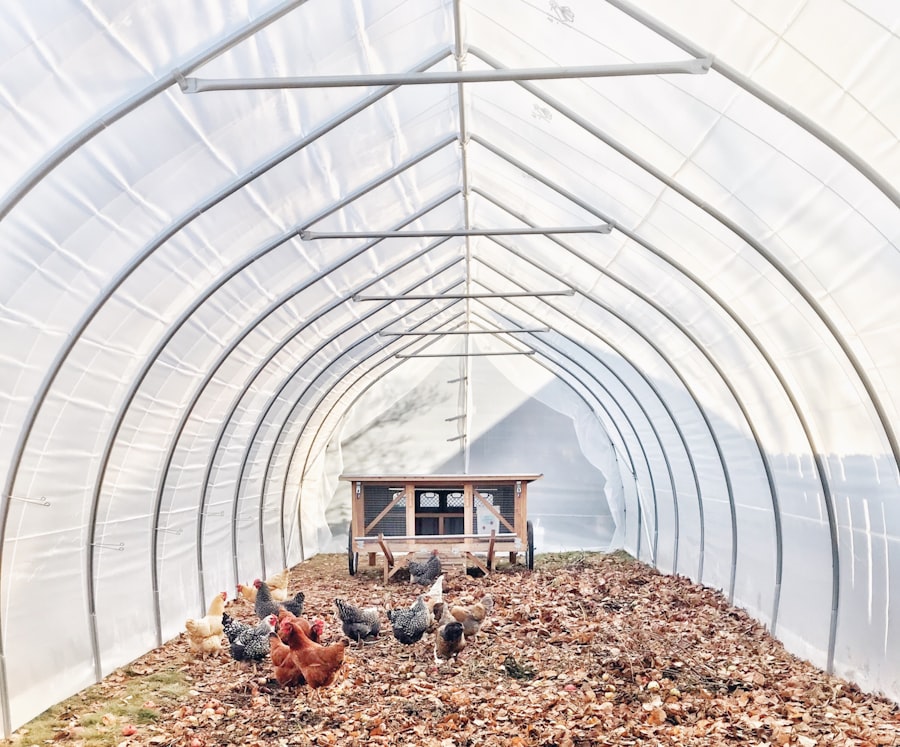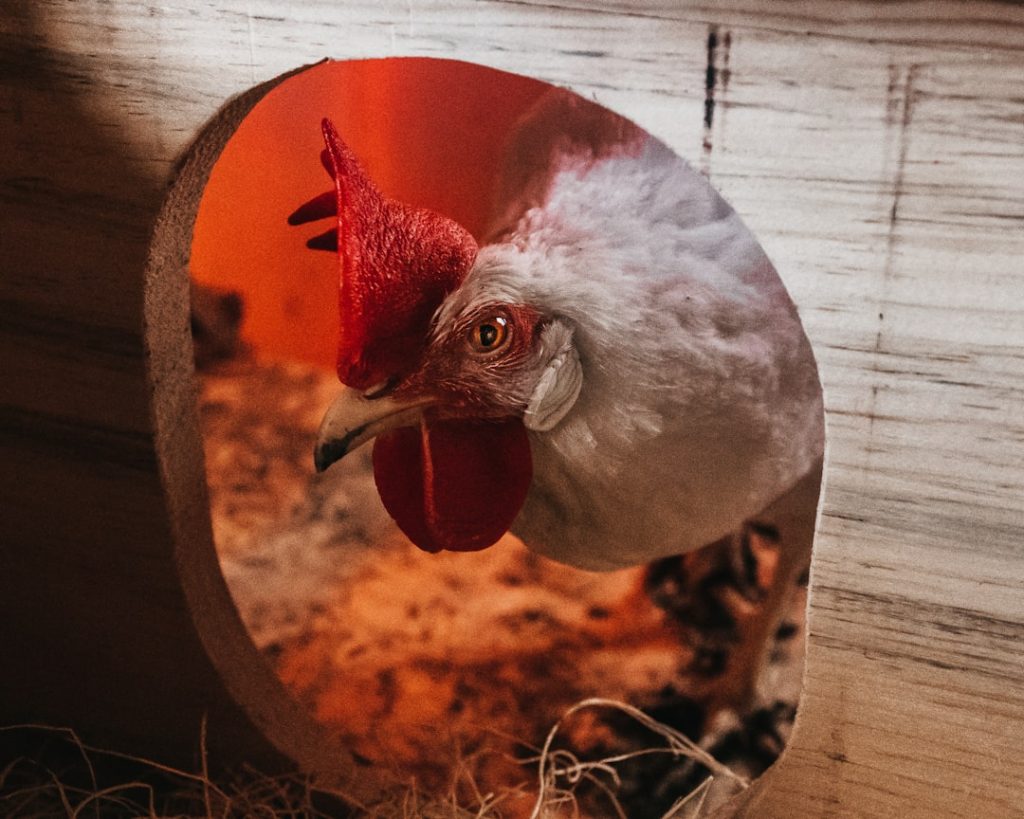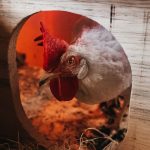Gnats are small, flying insects commonly found in damp and humid environments. They are attracted to decomposing organic matter, such as rotting fruits and vegetables, and standing water. Gnats are also drawn to carbon dioxide and heat produced by animals, making chicken coops an attractive habitat for these insects.
These pests are not only a nuisance to chickens but can also transmit diseases and parasites, highlighting the importance of keeping them away from coops. Understanding gnat behavior is crucial for developing effective control and repellent strategies. Gnats are most active during warmer months and typically inhabit areas with poor sanitation and hygiene.
They are drawn to the odor of decaying organic matter and thrive in high-humidity environments. Gnats are also attracted to light, often congregating around outdoor lighting fixtures. By comprehending gnat behavior, chicken owners can implement targeted measures to prevent these insects from infesting coops and threatening chicken health.
Table of Contents
- 1 Creating a natural barrier to keep nats away from the chicken coop
- 2 Using essential oils and herbs to repel nats
- 3 Implementing proper sanitation practices to deter nats
- 4 Installing fans and screens to keep nats out of the coop
- 5 Utilizing chemical-free insecticides to control nats
- 6 Monitoring and maintaining a nats-free environment for the chickens
- 7 FAQs
Key Takeaways
- Nats are attracted to moisture, waste, and food, so understanding their behavior is crucial in keeping them away from the chicken coop.
- Creating a natural barrier using plants, such as lavender and marigold, can help repel nats and protect the chickens from infestations.
- Essential oils like citronella and herbs like basil can be used to create natural repellents for nats around the chicken coop.
- Proper sanitation practices, such as regularly cleaning up spilled feed and removing standing water, can help deter nats from the coop area.
- Installing fans and screens in the coop can help keep nats out and create a more comfortable environment for the chickens.
- Utilizing chemical-free insecticides, such as diatomaceous earth, can effectively control nats without harming the chickens or the environment.
- Regular monitoring and maintenance of the coop, along with implementing these strategies, can help maintain a nats-free environment for the chickens.
Creating a natural barrier to keep nats away from the chicken coop
Repellent Plants: A Natural Deterrent
Planting insect-repelling herbs and flowers around the chicken coop is an effective way to keep nats at bay. Lavender, mint, basil, and marigold are excellent choices, as they emit strong scents that are known to repel insects. By incorporating these plants into your coop’s surroundings, you can create a natural barrier that deters nats from entering the area.
Physical Barriers: An Additional Layer of Protection
In addition to repellent plants, incorporating natural barriers such as cedar chips or diatomaceous earth around the perimeter of the coop can create a physical barrier that nats are less likely to cross. These barriers can provide an additional layer of protection against nats and other pests.
Attracting Natural Predators: Bats to the Rescue
Another natural barrier that can be used to keep nats away from the chicken coop is the installation of bat houses. Bats are natural predators of nats and can help control their population in the area. By providing a habitat for bats near the coop, chicken owners can encourage these nocturnal hunters to feed on nats and other flying insects, reducing their numbers and minimizing the risk of infestation in the coop.
By creating a natural barrier to keep nats away from the chicken coop, you not only protect the health of your chickens but also promote a more sustainable and eco-friendly approach to pest control.
Using essential oils and herbs to repel nats

Essential oils and herbs are natural remedies that can be used to repel nats from the chicken coop. Certain essential oils such as citronella, eucalyptus, and lemongrass are known for their insect-repelling properties and can be diluted with water and sprayed around the coop to deter nats. These essential oils emit strong scents that are unpleasant to nats, making them less likely to linger around the area.
Additionally, planting herbs such as rosemary, thyme, and sage around the coop can help create a natural barrier against nats due to their strong aromatic properties. Another effective way to use essential oils and herbs to repel nats is by incorporating them into homemade repellent sprays or diffusers. Mixing essential oils with water or carrier oils such as coconut or jojoba oil can create a natural insect repellent that can be applied to the skin and feathers of the chickens, providing them with added protection against nats.
Similarly, using herb-infused sachets or hanging bundles of dried herbs in the coop can help deter nats and other insects while adding a pleasant aroma to the environment. By utilizing essential oils and herbs to repel nats, chicken owners can effectively manage pest control in a safe and natural manner.
Implementing proper sanitation practices to deter nats
Implementing proper sanitation practices is crucial in deterring nats from infesting the chicken coop. Regularly removing and disposing of any decaying organic matter such as spoiled feed, fruits, and vegetables can help eliminate potential breeding grounds for nats. Keeping the coop clean and dry by regularly removing soiled bedding and replacing it with fresh material can also help reduce moisture levels and discourage nats from thriving in the environment.
Proper waste management is another important aspect of implementing sanitation practices to deter nats. Ensuring that manure is promptly removed from the coop and properly composted or disposed of can help minimize odors and reduce the attraction of nats to the area. Additionally, maintaining clean water sources and regularly cleaning feeding areas can help prevent the accumulation of organic matter that may attract nats.
By implementing proper sanitation practices, chicken owners can create an environment that is less conducive to nats, ultimately reducing the risk of infestation and protecting the health of the chickens.
Installing fans and screens to keep nats out of the coop
Installing fans and screens in the chicken coop is an effective way to keep nats out and maintain a comfortable environment for the chickens. Fans can help improve air circulation and reduce humidity levels in the coop, making it less favorable for nats to thrive. Additionally, fans can create airflow that disrupts the flight patterns of nats, making it more difficult for them to enter and navigate within the coop.
Screens are another essential component in keeping nats out of the coop. Installing fine mesh screens on windows, vents, and openings in the coop can prevent nats from entering while still allowing for adequate ventilation. Screens act as a physical barrier that blocks nats from accessing the interior of the coop, reducing the risk of infestation and protecting the chickens from potential diseases and parasites carried by these insects.
By installing fans and screens in the chicken coop, chicken owners can create a more comfortable and nats-free environment for their flock.
Utilizing chemical-free insecticides to control nats

Natural Insecticides for Effective Nat Control
Natural insecticides such as neem oil, pyrethrin, and diatomaceous earth can be used to effectively manage nats without posing harm to the chickens or the surrounding ecosystem.
Neem Oil: A Natural Insecticide
Neem oil, derived from the seeds of the neem tree, contains compounds that disrupt the growth and development of insects, making it an effective natural insecticide for controlling nats.
Pyrethrin and Diatomaceous Earth: Additional Natural Options
Pyrethrin, derived from chrysanthemum flowers, is another natural insecticide that targets the nervous system of insects, effectively killing them upon contact. Diatomaceous earth, a fine powder made from fossilized algae, works by dehydrating insects upon contact, making it an effective and non-toxic option for controlling nats in the coop.
Benefits of Chemical-Free Insecticides
By utilizing chemical-free insecticides, chicken owners can effectively manage nats while minimizing their impact on the health of the chickens and the environment.
Monitoring and maintaining a nats-free environment for the chickens
Monitoring and maintaining a nats-free environment is essential in ensuring the health and well-being of chickens. Regularly inspecting the coop for signs of nats and implementing preventive measures such as proper sanitation practices, natural barriers, and chemical-free insecticides can help keep nats at bay. Additionally, maintaining good ventilation, cleanliness, and hygiene in the coop can help create an environment that is less favorable for nats to thrive.
Regularly monitoring water sources for signs of contamination or infestation by nats is also important in maintaining a nats-free environment for chickens. Keeping waterers clean and free from algae or organic matter can help prevent nats from breeding in these areas. Furthermore, promptly addressing any issues related to moisture or standing water around the coop can help minimize conditions that are conducive to nats.
In conclusion, understanding the behavior of nats is crucial in developing effective strategies to control and repel these pesky insects from the chicken coop. By creating natural barriers, using essential oils and herbs, implementing proper sanitation practices, installing fans and screens, utilizing chemical-free insecticides, and monitoring and maintaining a nats-free environment for chickens, chicken owners can effectively manage pest control while promoting a safe and healthy environment for their flock.
If you’re looking for a reliable chicken coop to keep your flock safe from predators, the Producers Pride Sentinel Chicken Coop is a great option. This coop is designed to keep your chickens safe from nats and other pests while providing them with a comfortable and secure living space. Check out this article to learn more about this top-rated chicken coop.
FAQs
What are nats and why are they a problem for chickens?
Nats are small, flying insects that can be a nuisance to chickens. They can irritate the chickens, cause stress, and potentially transmit diseases.
How can nats be kept off chickens?
There are several methods to keep nats off chickens, including using natural repellents such as herbs and essential oils, providing proper ventilation in the chicken coop, and using commercial insecticides specifically designed for poultry.
What are some natural repellents for nats?
Natural repellents for nats include herbs such as lavender, mint, and basil, as well as essential oils like citronella, eucalyptus, and lemongrass. These can be used in the chicken coop or applied directly to the chickens.
How can ventilation help keep nats off chickens?
Proper ventilation in the chicken coop can help reduce the presence of nats by improving air circulation and reducing humidity, which nats are attracted to. This can be achieved through windows, vents, and fans.
Are there any commercial products specifically designed to keep nats off chickens?
Yes, there are commercial insecticides and repellents that are specifically designed for use in poultry settings. These products are formulated to be safe for chickens and can effectively control nats and other insects.
Meet Walter, the feathered-friend fanatic of Florida! Nestled in the sunshine state, Walter struts through life with his feathered companions, clucking his way to happiness. With a coop that’s fancier than a five-star hotel, he’s the Don Juan of the chicken world. When he’s not teaching his hens to do the cha-cha, you’ll find him in a heated debate with his prized rooster, Sir Clucks-a-Lot. Walter’s poultry passion is no yolk; he’s the sunny-side-up guy you never knew you needed in your flock of friends!







